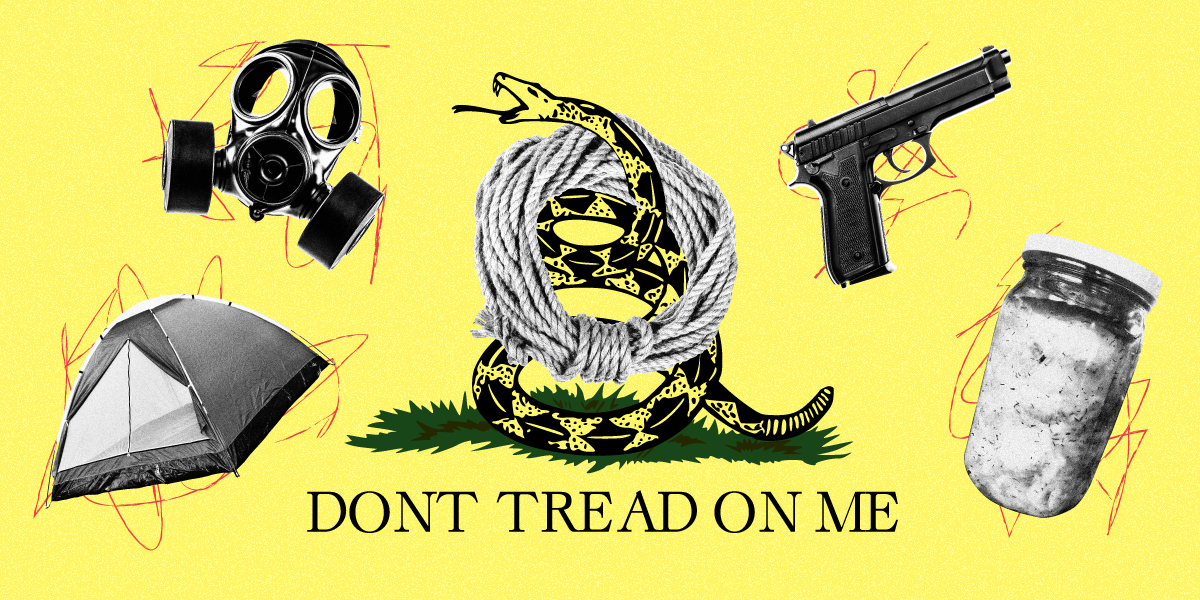- Over a thousand doomsday preppers gather every year in the rolling hills of western North Carolina for Prepper Camp.
- It’s a summer-camp-meets-Burning Man meetup, where like-minded preppers come together to learn about farming, cooking, living off the grid, and shooting guns.
- Preppers share a common fear that the end of the world is coming, and it’ll produce mass chaos, carnage, and looting.
- Insider was there as the preppers learned new skills, shopped for supplies, and renewed their friendships.
- Visit Insider’s homepage for more stories.
SALUDA, North Carolina – Tucked into the the rolling Appalachian Mountains of western North Carolina, in a corner of the state brimming with churches and crosses in front yards, there is a hidden camp next to a quiet lake.
This private campsite is where over a thousand doomsday preppers gathered one weekend in late September for their annual Prepper Camp, a mash-up of a wilderness survival course-meets-summer camp for people who love guns, getting off grid, and God. The New York Times has referred to it as a “survivalist’s Burning Man.”
The group is made up mostly of gray-haired retirees and couples toting kids for a weekend away from home. They are nearly all white, staunchly conservative, and eager to share what they’ve learned about organic farming, raising livestock, tying ropes, fermenting cabbage, and filtering drinking water in the wild.
Yet this backwoods crowd makes it known that when the end of life as we know it arrives, whether by hurricane, flood, nuclear electromagnetic pulse (EMP), or exploding civil warfare, they won’t be so friendly anymore. That’s when they’ll take to their predetermined secret locales, shoot would-be intruders, and do whatever it takes to protect their families and their stockpiled food.
Doomsday preppers want to return to less consumption-driven lives
The people at Prepper Camp tend to embody a bleak worldview, indicative of their distrust in society at large, and their distaste for rules and regulations. They decry the downfall of religion and civics in the US, and worry the country is headed towards a version of free-handout socialism. But they also share a lot of values in common with sustainability-minded liberals. They bring to camp an urge to return to simpler lives that are less consumption-driven. If they can get off the grid, even better.
Over a three-day weekend, Prepper Camp founder Rick Austin showed Insider how his band of survivalists is preparing for the fateful day when the world will collapse.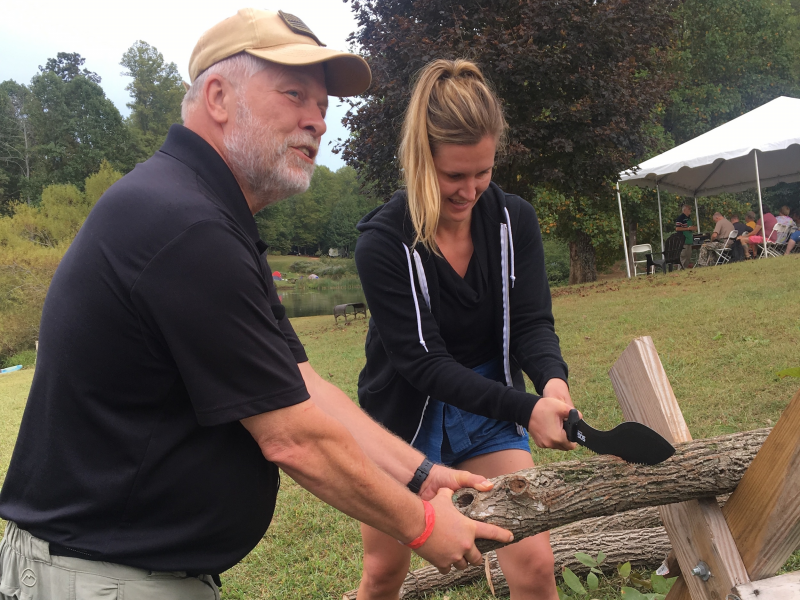
The campers think red states are ideal for prepper homesteads
Since 2014, Prepper Camp has been a haven for like-minded preppers who drive in from the Carolinas, Florida, Texas, and other southeastern US states.
There are plenty of Gadsden Flags displayed here on t-shirts and backpacks - the revolutionary (and controversial) symbol of a coiled up rattlesnake readying to attack and the words "Don't tread on me" scrawled across the bottom of a yellow flag. Some preppers wear military fatigues, Trump 2020 hats, and Rush Limbaugh t-shirts.
During a session called "Getting off grid - now!" Austin asks the crowd what the most important features are when considering where to build a prepper homestead. High ground might be a good idea, he suggests, as that's where he's built his own off-grid home at an "undisclosed location" in the Appalachians.
"Red state!" someone in the crowd yells out, to laughter.
Living around like-minded conservatives is important, Austin agreed, "because you want to be around people who have similar values," and not gunless "libtards," as he put it.
Prepping is about being ready to survive whatever comes your way
But a lot of what these preppers practice isn't political at all.
Key tenets of the camp include growing and raising food, reducing consumption, and disengaging from a vicious cycle of consumerism. Austin's off-grid class touches on how to choose the best solar panels to power your home, as well as the importance of growing organic and pesticide-free produce, collecting rainwater, harvesting coffee, and storing it all in a root cellar, which could double as a bunker.
"We're not a bunch of nuts," Austin's wife, a woman who calls herself "Prepper Jane," said. "We're people who want to do what our grandparents did."
That's certainly true for preppers like Brian and Angela Adams, who told Insider they have been prepping for about four years.
The pair used to live in what they described as a "cookie cutter" neighborhood, but they got sick of their homeowners association and wanted to "get back to a simpler lifestyle, less internet and TV," Angela said.
Both Brian and Angela still work full time, but they also raise two piglets, 70 chickens, one turkey, a couple rabbits, and three guineas, in addition to tending to greenhouses and collecting water on their "small micro farm" of about two acres. They are part of a prepping and homesteading collective spread out across North Carolina, and attended the camp with four of their closest prepper friends.
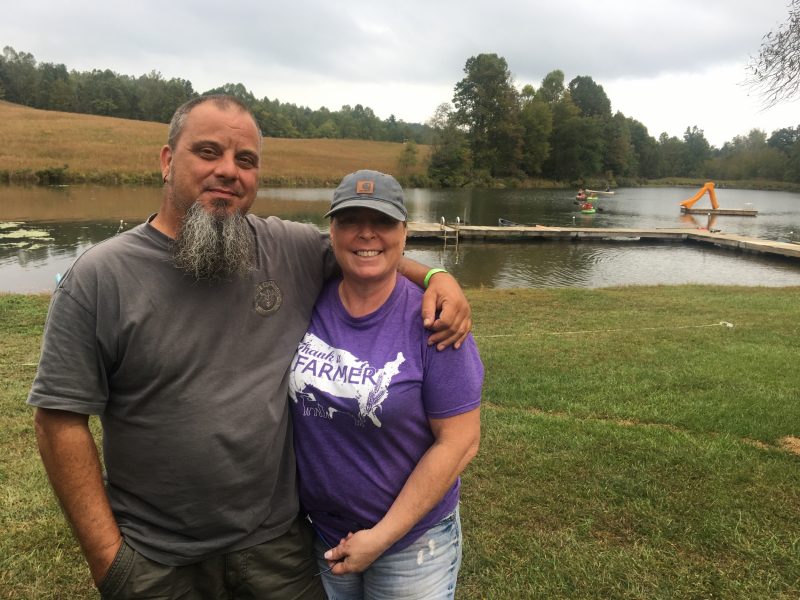
Instructor John Moody urged the Adamses and all the other homesteaders in his "Frugal Homesteader" class to pool resources (like tractors) with other farmers around them, instead of buying their way into prepping. Moody stressed the importance of remaining debt-free and avoiding over-buying commodities like chickens in a quest for self-reliance.
He references Wendell Berry, the Kentucky-born farmer and acclaimed poet who is a champion of fair pricing and cooperatives for small-scale farming, telling his pupils to value their work, and not underprice their meat or produce when selling to city-folk.
Other teachers take a more hands-on approach. Prepper instructor and Earth School founder Richard Cleveland takes dozens of us on a short walk around the campground, identifying edible plants and offering samples to the crowd.
"The good news is that if you start eating weeds, you will never need Metamucil," Cleveland said, bending down to munch on a green dandelion leaf.
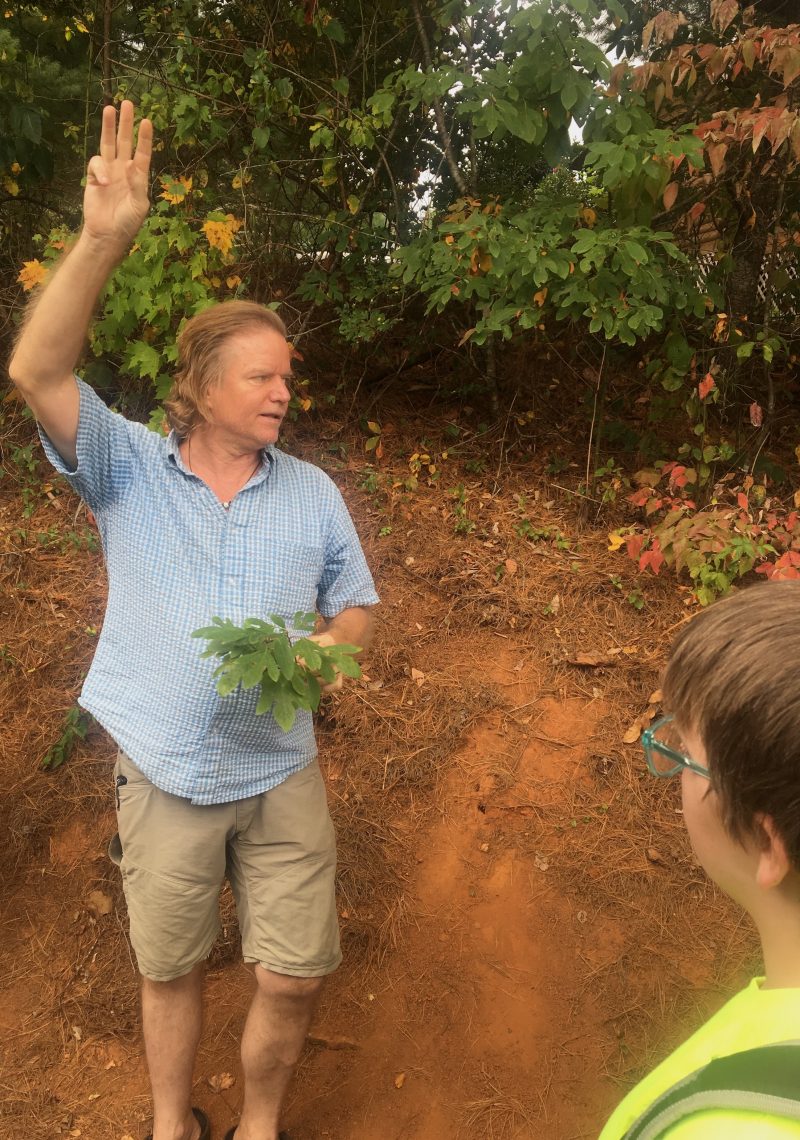
Everyone at Prepper Camp has guns, or at least knows how to use them
Many preppers tell me to "get out" now when I mention I'm from New York City. They can't imagine living in a place where they can't open-carry a firearm, a critical facet of their prepping.
Ron Kidwell, a prepper camp volunteer from New Jersey who's corralling cars in the parking lot, tells me how he moved to North Carolina in the mid-1980s after being followed home twice.
"I was just so calm here compared to Jersey," he said.
He made the decision in part because he knows he can carry a gun in this state.
Like many others at camp, Kidwell is motivated to prep by a fear of liberal politics.
"When Obama got elected, I traded a collectible for working, really nice military pistols," he said. "When I thought that society might fracture a little bit, I didn't want to be in position where I would say 'I wish I had [guns].'"
Many other preppers are former military members who've used guns to defend themselves in combat for years and want to continue doing so, if need be.
"This is probably the safest place you've ever been," said Army and Air Force veteran Dave Stutts, while walking through a campground filled with gun-emblazoned t-shirts and caps. He pointed out that near everyone staying at prepper camp has a gun.
Stutts teaches a prepper class on "defensive shooting" and calls assault rifles like the AR-15 the beloved "Lego" of the gun world, because you can swap parts out to your preference. (The AR-15 is also often the weapon of choice for mass shooters in the US.)
There isn't an opportunity to shoot guns during Prepper Camp sessions, but Stutts encourages locals to visit his Wolf-Fire gun range outside Charlotte, where he helps students of all ages play through scenarios, like how to shoot under the table in a restaurant, because "you never know what situation you're going to be in."
"The more people that are prepared, the better the world's going to be if something happens," he said.
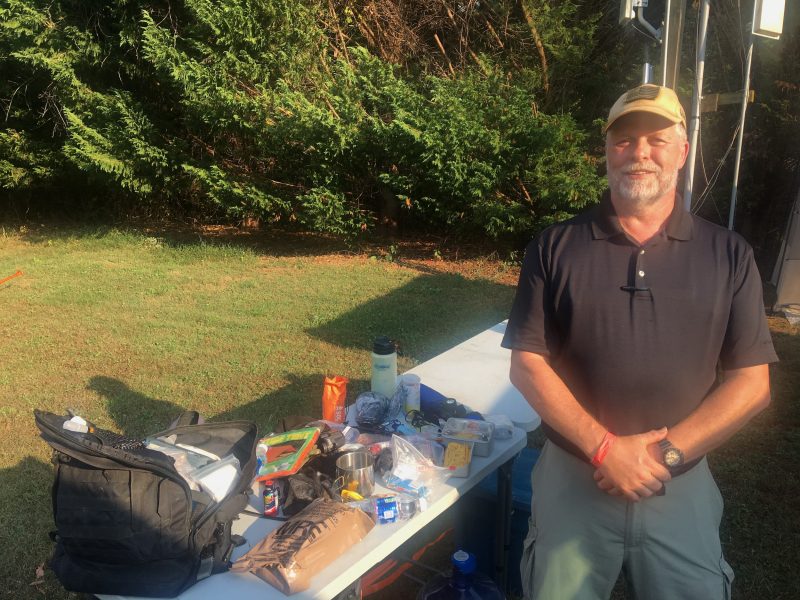
There is a conspiracy theorist side to Prepper Camp
During the daylight hours, vendors sell prepping supplies (batteries, knives, rain barrels, medical necessities), while campers munch on barbecued pulled pork and gelato served from a few food trucks and trailers. There's a zipline, a horseshoe pit, and paddling out on the lake.
But after dark, the crowd turns to thoughts about the end of society as we know it.
On Saturday night, after the sun's last rays have drifted past the mountaintops, Austin introduces this year's keynote speaker, filmmaker and former Idaho state Representative Curtis Bowers. He proselytizes about how the social fabric of America is being destroyed by evil communist forces.
Bowers lectures the crowd about how the Obama cabinet was infiltrated by Russian members of the KGB and how millennials are immoral religion-haters destroying American values. He encourages those who stay for his talk to buy not one, but three copies of his DVD for sale at camp - all the better to share with friends and neighbors.
Austin also tells the evening crowd gathered for Bowers' talk that the "dependency" mindset of the left's "socialist agenda" is behind a terrible national trend of declining religion and fewer civics lessons.
The takeaway is that the preppers make up a select group who need to protect a dying way of life. Not all neighbors and co-workers are to be trusted, because when society falls apart, they will come for your stuff at all costs.
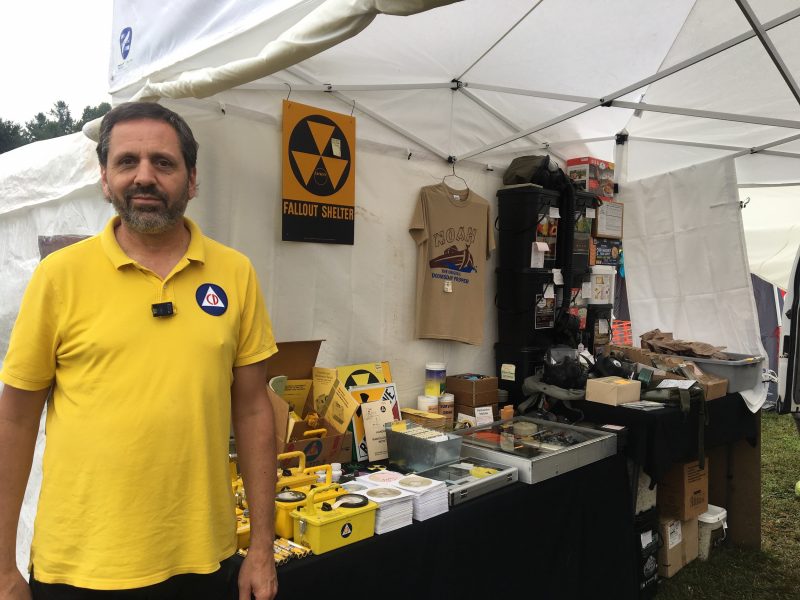
Prepper Camp is about building community, now and for the end of the world
Whether they come to learn about raising chickens or picking out guns and bullets, preppers are here to commune with their people, first and foremost.
"I have talked to a wide spectrum of people who have different political and different religious beliefs," vendor Mary Elizabeth, a first-timer at the event hoping to sign up preppers for a primitive skills course, said.
"There's been one common theme, and that's been people just want to love life," she said. "It's very heart-centered."
A significant number of campers have dedicated "mutual assistance groups" or MAGs, that develop plans for dealing with disaster. Each person brings a different skill or asset, whether it's a well-trained attack dog, an off-grid home, or a black belt in karate.
Prepping can be a way to cope with traumatic experiences
Most preppers aren't really preparing for a zombie apocalypse, as is so often portrayed in pop culture. Instead, they share stories of times that food stores have fed their families during hard times, and how their prepping helped them spring in to action during natural disasters.
Several preppers shared personal stories of trauma that gnawed at their ability to feel safe, catapulting them into the prepping fold. Prepper Jane says she finally decided to live off-grid after being car-jacked at gunpoint.
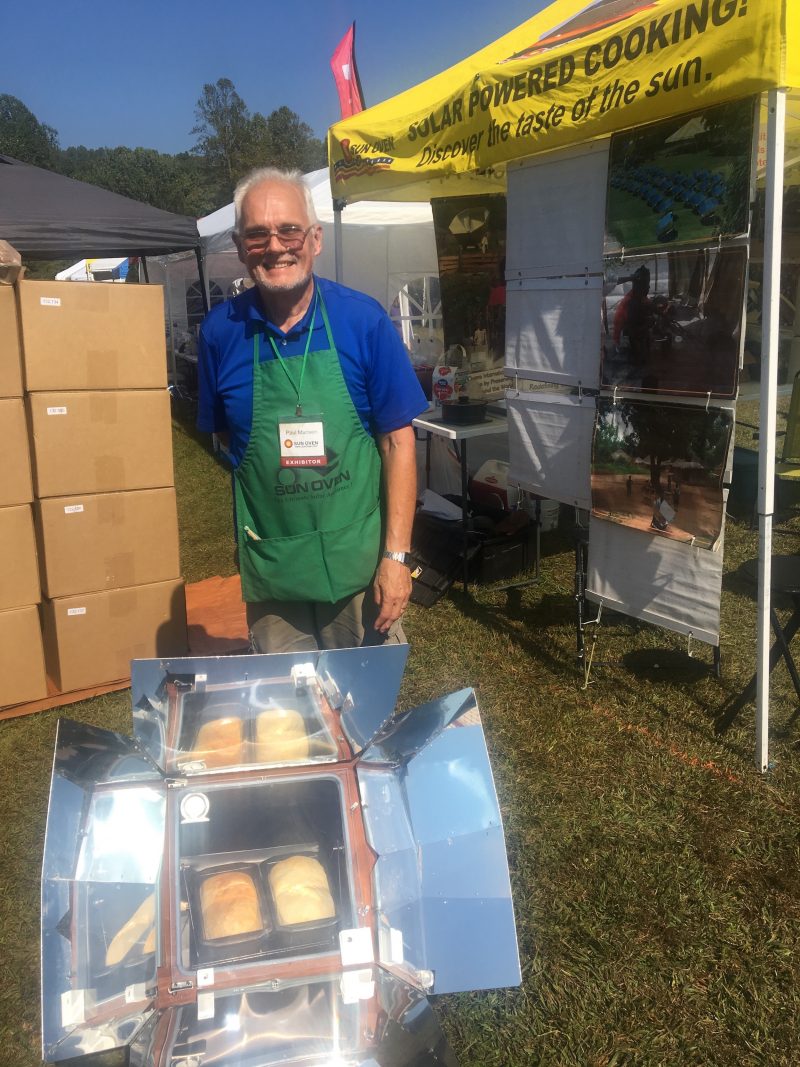
"They took away my happy place," she told the crowd at her seminar on the biggest mistakes new preppers make, explaining she never quite felt right getting in her car after the incident. Other preppers have been in combat, or lived through natural disasters that remind them how keeping extra water, supplies, and guns on hand is not a bad idea.
They think about less likely scenarios, too. Stutts gives his firearms class the advice to "go West, then North" if a nuclear plant ever explodes, so they're traveling with, not against the prevailing winds, and (hopefully) out of the fallout cone quickly.
"There's reasonable things you can do to prepare your family, not just for a catastrophic event," Kidwell said, noting that his own prepping group has enough food to get by if there's a hurricane or flood. "We will support each other, but we're not going out looking for trouble."

